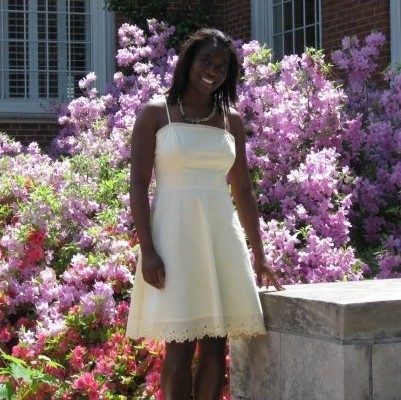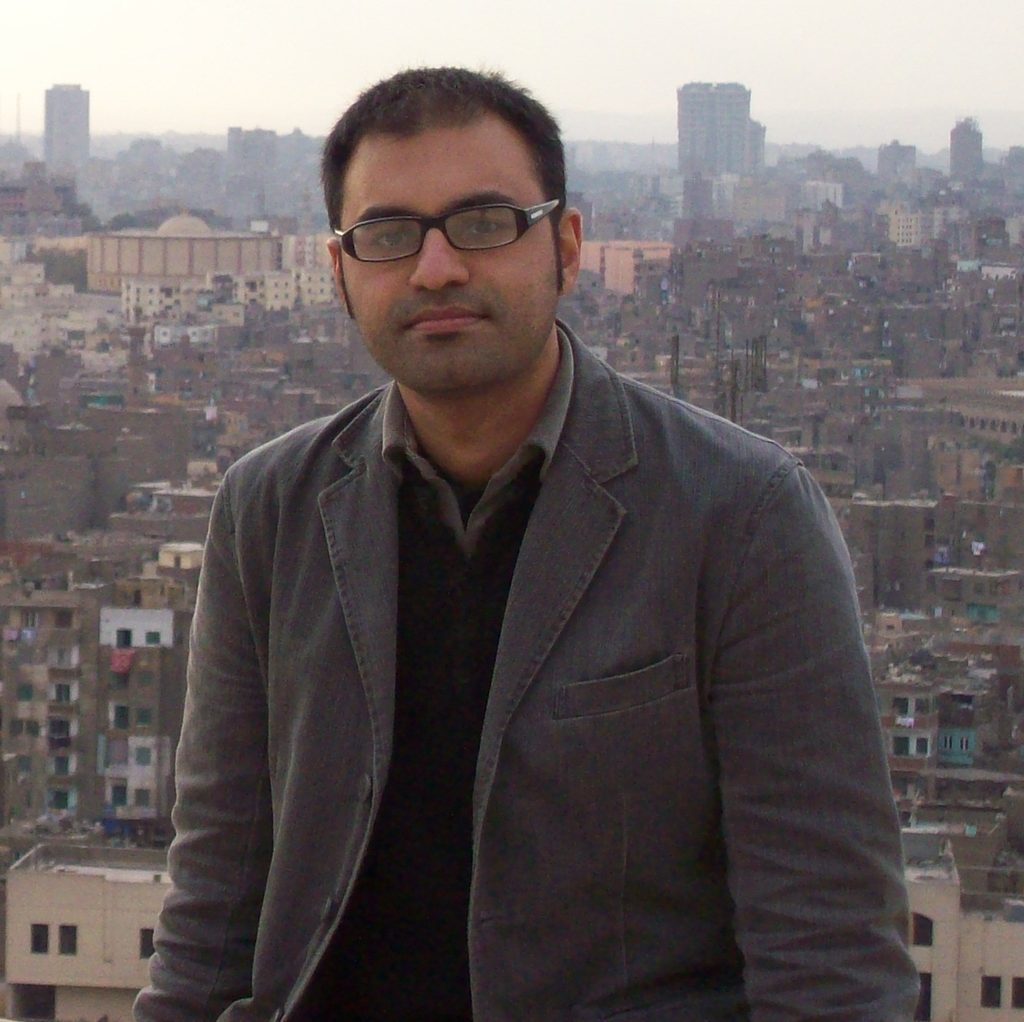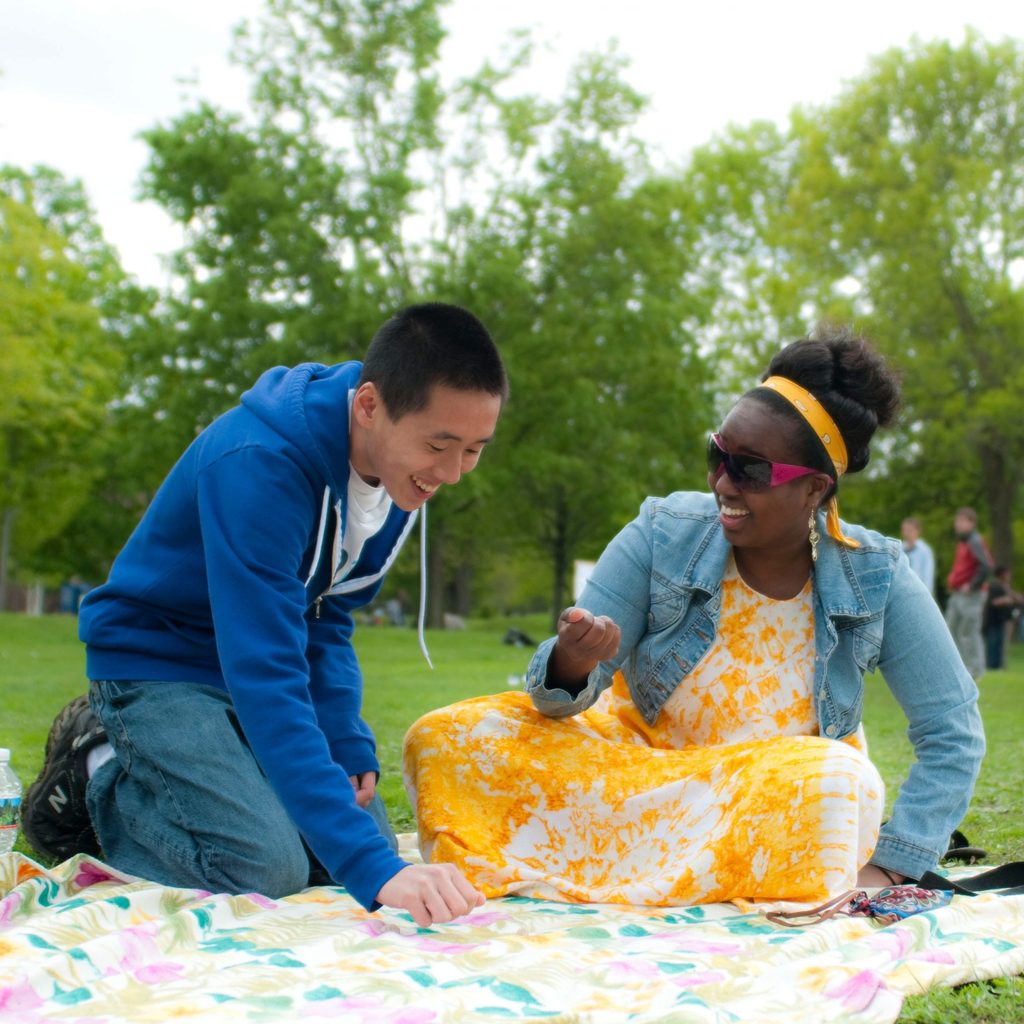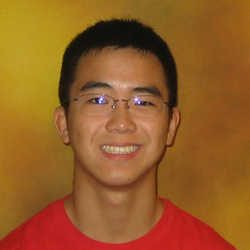MCAN NOTES
Carleton’s Multicultural Alumni Network
Spring 2011
News, Events and Announcements in this edition:
2011 MCAN Scholar Grant Recipients
Senior Spotlight – Brooke Davis
Multicultural Senior Ceremony Celebration – May 28, 2011
Gathering Memories – Faisal Mohyuddin ’00
International Festival 2010 Recap
Intergroup Dialogues: What’s that?
Chicago Club event feat. Cherif Keita
2011 MCAN Scholar Grant Recipients
Congratulations to our 2011 MCAN Scholars!
- Sameena Ahmed
- Mouhamadou Diagne
- Aman Gupta
- Chisato Uyeki Hughes
- Shantrice King
- Rachel Kittaka
- Ziliang Liu
- Shreya Singh
- Xinxin Xie
- Yu “Iris” Wang
- Heather Yang
- Melody Zhou
Twelve students were awarded MCAN scholarships in 2011. Scholars received over $34,000 raised from MCAN supporters. This year we received applications from a diverse and impressive group of students. Their internships represent a wide range of experiences including work in medicine, publishing, art history, and cinema.
Thanks to all of you who contributed to MCAN! Your dollars are enriching the lives of Carleton students.
If you have not had a chance to give this year, our fiscal year doesn’t end until June 30th. There is still time for you to give. Your donations will allow us to fund our scholars next year.
To read the more about our Scholars and watch three new scholar video interviews, check out the MCAN Scholars webpage.

Senior Spotlight: Brooke Davis ’11
Graduating senior Brooke Davis is a Political Science and International Relations double major from Midlothian, Virginia. While attending Carleton, Brooke has been active in Model United Nations, Christian and interfaith community life, and activities in the French and Spanish Departments. As part of the Model UN team, Brooke competed in Philadelphia, Vancouver, and Singapore. She also works for the Chapel organizing events for all religious groups, helping to fulfill the spiritual health needs of students.
Most recently, Brooke spent the summer at the University of Maryland, College Park. As part the Thomas Pickering Fellowship program, she took classes in national security, statistics, leadership, and economics. During her four years at Carleton, Brooke has traveled to various cities in China, Vietnam, Burma, and Thailand through a political economy study abroad program. Brooke also spent a term in Washington, D.C. interning for the International Center for Religion and Diplomacy and a term improving her French while living with a host family in Paris.
After graduation, Brooke will fly to Washington, D.C. for her first work week at the U.S. Department of State. In the fall, she’ll enroll in the Harvard Kennedy School of Government for a Masters in Public Policy. Brooke describes her experience at Carleton as “spending time on a different, wonderful planet.” She continues, “The people I have gotten to know here support each other wholeheartedly, always seek to challenge themselves, and constantly question how to live life and to what aim. That continual practice of questioning the establishment and meaningful living has made me a stronger, more conscientious person.”
Beserat Kelati ’12
MCAN Board Student Representative
Multicultural Senior Ceremony Celebration
The Multicultural Senior Celebration (MSC) is an event dedicated to celebrating the multicultural seniors of the current and post graduating years. In addition, MSC aims to demonstrate to underclassmen that graduation from Carleton College is an obtainable goal, although it requires hard work and a drive to overcome life’s conquerable hardships and challenges. The Multicultural Senior Celebration is characterized by student created performances, a faculty member key note speaker, and ends with a family picnic or barbecue. This picnic allows graduating seniors, underclassmen, staff, faculty, and alumni of diverse backgrounds to come together to talk, dance, and enjoy each other’s company, fostering community among various subgroups that make up Carleton’s campus.
This ceremony first took place a couple years ago (under the name Multicultural Graduation) by determined students who deemed it necessary to have a separate commencement ceremony that recognized their academic achievements at Carleton. Though we believe in the spirit of their mission, we did not want to have a separate commencement. Instead we wanted to have a ceremonial reception that incorporates seniors and underclassmen that identify themselves as multicultural, an idea that extends beyond race.
In 2010, we revamped the entire ceremonial idea from the mission statement to the performances. We gathered support from various departments and the multicultural community. After months of gathering diverse performances, student reflections and funds, we finally created an event that not only celebrated seniors, but also fostered a feeling of community and comfort amongst all classes. We had Adriana Estill, an associate professor of English and American Studies, as our keynote speaker, gift ribbons for the senior class, and emotional participants.
This year, we are keeping our same idea of celebration and community, but instead we are gathering new performances, reflections and an over arching theme. Our theme this year is “Putting the U.N.I.T.Y Back in Community”. We will have diverse performances that express appreciation for the senior class and their achievements through, song, dance, poem, and music. We will also have Hudlin Wagner, vice president for Student Development and Dean of Students, as our keynote speaker to help convey the importance of establishing and maintaining unity in our community. Moreover, we are emphasizing that this event is open to all students no matter what background of diversity they may come from. The event is scheduled on May 28th, 2011 at 3pm in the Great Hall. We are very excited to have this event and hope that this will continue after we graduate!
Jeweletter Johnson ’13
Multicultural Senior Celebration Committee

Gathering Memories: Remembering Senator Paul Wellstone Being Remembered
By Faisal Mohyuddin
Carleton College Class of 2000
April 2011
My father woke me to share the shocking news. Over the phone, he told me that a plane carrying Senator Paul Wellstone went down in northern Minnesota, and it was feared that he, his wife Sheila, daughter Marsha, and five others were killed—a fear that was confirmed not long afterwards. At the time I was in graduate school, living in campus housing, and I had no television to turn on, so I stayed on the line as my father relayed the news coverage. I remember staring out my window in disbelief, rubbing the sleep from my eyes, and thinking of how strange it was that the drabness of that October day echoed the somberness of my father’s voice. Yes, what had happened was without question an absolute tragedy, but what perplexed me was the extent of my father’s sadness.
Two and a half years earlier, at my graduation from Carleton, my family members, who had arrived uncharacteristically early to get the best seats, found themselves sitting next to Senator Wellstone way up front. Throughout the ceremony for the Class of 2000, he and my parents chatted off and on—an experience they still recall with great fondness and pride. My mother remembers how warm and friendly he was, how eager he was to talk to anyone who approached him that afternoon. Senator Wellstone taught at Carleton well before my time there, so I knew only of him; I possessed no experience that allowed me to know more about the kind of person he really was, to grasp why my father—after only one encounter—felt as if he had lost a close friend in the plane crash.
It wasn’t until the MCAN Gathering of 2008 that I began to understand. A few of my closest friends and I decided to attend a session commemorating the life and career of Senator Wellstone, in particular his time at Carleton. Most of the people gathered in the big lecture hall in Olin were much older than we were, many of them former students of Senator Wellstone, and I remember feeling a little out of place. Yet some impulse told me it was important and necessary for us to be there—for me to be in a position to learn more about this beloved man I never met but whose spirit lingered so strongly in so many people’s lives.
For the next hour, my friends and I listened intently to alumni of color from the 70s and 80s, some from the 90s, share impassioned stories about Senator Wellstone. His legendary status as a professor, we learned, was built upon countless acts of courage and kindness and scholarship, both in and out of the classroom. One after another, alumni described the way he challenged them to always strive for excellence in all of life’s pursuits, inspired them to use the gift of a Carleton education to work to advance the rights of every human being, and charged them to never stop fighting to make the world a better, more just place. Some talked about how, after the college had fired him, they organized protests that succeeded in getting Senator Wellstone rehired. He had fought for the rights and needs of students and faculty of color, they said, and they knew he had earned their support in return. Others just talked about more low-key moments in which he made them feel more at home at Carleton, more a part of the larger community of the college, more able to make a difference in the world. The grief in the room, the sense of loss people felt, was without measure. Even the most mundane interaction with Senator Wellstone, it seemed, gave a person good reason to miss him dearly.
The more I heard, the more I could understand my father’s sorrow back in 2002—and the more I began to feel a kind of loss too. But it wasn’t loss exactly; it was more like the feeling one has after missing out on something wonderful, exclusive, and unforgettable. As I sat there in that room, I wished so badly that somehow I could have gotten to know Senator Wellstone too, so that I could now have my own stories to tell. I remember raising my hand to share this sentiment—and, as I did, another emotion, a much more fitting one, bubbled up within me. I felt a profound sense of gratitude towards all of the alumni in the room (as well as the countless more not present) who preceded my friends and me, all of whom, in their own special way, had helped mold Carleton into the dynamic, big-hearted, and unique place that it is. Their stories made me feel closer to Senator Wellstone—but, more than that, they connected me more directly to Carleton’s history, brought me closer to its tradition of excellence, made me prouder and more privileged than ever to be a Carl.
Come this June, eleven years will have passed since I graduated, and during this time I have been fortunate enough to return to Carleton several times—to visit friends and former professors, to participate in a summer institute for teachers, and to attend my five- and ten-year Reunions as well as MCAN Gatherings, which I have been doing every four years since my freshman year in 1996. Each visit has further bolstered my connection to the college and helped me appreciate what a special place Carleton truly is. But what has made the Gatherings so unique and so meaningful is how extensively during that weekend alumni of color, regardless of class year, interact with one another—as well as with current students, faculty, and staff—in order to forge relationships that quite literally transcend time. The impulse that brought me to Olin to commemorate the legacy of Senator Wellstone that day was an impulse to build new connections, to belong more completely to the Carleton family.
Now, whenever my father brings up my graduation or talks about meeting Senator Wellstone, memories of the Gathering of 2008 flock to my mind, and I can’t help but think of the stories I heard that September as treasures passed on to me from a previous generation of Carls. They are, in a way, a kind of inheritance that has enriched my life and inspired me to keep alive a noble tradition of service and scholarship. Moreover, I have come to understand that I too possess a wealth of stories, not of Senator Wellstone per se but of the professors that I was blessed to learn from, who are too numerous to name, whose wisdom, kindness, and dedication will always guide me forward. And there are so many other stories too. By staying connected to Carleton, especially through MCAN, I know that these stories—my stories—will be little gifts I can pass on to future generations of students and alumni in an effort to keep us all connected, mutually inspired, and forever cognizant of how our own experiences of Carleton are shaped by—and an integral part of—a long continuum of hope, struggle, triumph, and self-discovery.
Faisal Mohyuddin ’00, is a high school English teacher in Highland Park, Illinois. His writing has been featured on Chicago Public Radio and appeared in many publications, including in Poet Lore, Atlanta Review, Literary Laundry, and Indivisible: An Anthology of Contemporary South Asian American Poetry. The online journal Literary Laundry is currently showcasing a selection of his poems.

14th Annual International Festival
The Bald Spot usually exudes two colours: the white of the snowy winter months, and green in other seasons. However, on the seventh Saturday of Spring 2010, it was littered with a sea of bright, vibrant colours. Passion red, shining gold and turquoise blue ethnic costumes were donned by the organizers and participants of SYNTHESIS, the fourteenth annual international festival.
The festival was traditionally held in Great Space but to accommodate the growing number of festival attendees over the last thirteen years, it was brought outdoors last year. A total of over twenty student organizations participated in preparing and executing the festival that hosted more than 500 people. Packed into the two-hour program are fourteen cultural performances on stage and a chance to sample more than thirty ethnic cuisines. After filling up hungry bellies with delicious food, some festival on-goers participated in henna, face painting, calligraphy and origami. Some others participated in international games (a new addition to the program in 2010) to loosen up their tight bellies before lining up for food again while others marveled on the various ongoing performances on stage.
Festival attendees were not the only ones who enjoyed themselves though; the organizers also had tons of fun in the process of planning. Ten weeks of preparations for a two-hour event may seem excessive but watching people have fun celebrating cultural diversity made the long-hours of preparations worth it. Combined efforts of the students in the planning committee and the participants of the festival brought both international and domestic students together and created a chance for the students across class years and cultural backgrounds to form friendships. It was truly a festival celebrating diversity in every way!*
Khant Khant Kyaw ’11
International Festival 2010 Committee Chair
*The 15th Annual International Festival was held on Saturday, May 7, 2011

Intergroup Dialogue: What’s That?
By Dennis Ea ’13
In response to the Campus Climate Survey in 2007, Carleton adopted a program from Skidmore College to start a student-led dialogue course that invites students to reflect on their stories and experiences regarding the categories of race, class, gender, and sexuality in their lives and during their time on campus. This two-credit course, IDSC 103: Student Conversations about Diversity and Community, seeks to encourage students to have inspired, deliberate discussion about the identity issues they face and see at Carleton. A main objective of the course is to motivate students to bring the shared stories heard in the classroom to the campus and to create action in order to approach students’ concerns.
IDSC 103 was a weekly course during winter term 2011 led by two student co-facilitators with the support of the “coaches”, who are various Carleton staff and faculty. After an all-campus email advertisement, interested students were required to submit a brief application outlining their interest in the course. They were divided into one of four sections of the course to fill each section with people of different identifications and demographics. Classes ran an hour and forty five minutes and students were asked to discuss and share experiences throughout the period in response to selected readings.
Joe Baggot and Lori Pearson began training the student facilitators last spring term with occasional visits from Carleton professors in a variety of academic departments. The focus of this training course was exposure to the type of dialogue course that we were going to facilitate. In the following fall term, Joe and Adriana Estill continued the training course with the same group teaching us the responsibilities, techniques and role of the student facilitator. During these weekly classes, we read and discussed articles of a wide variety of issues and sources, did activities that challenged us on uncomfortable topics, practice room and time awareness, identify our strengths and weaknesses in our facilitation styles, understand how to set and monitor the room dynamics, challenge quieter and louder students and all viewpoints, direct dialogue to set goals to be productive, uphold class/community standards and make sure that everybody feels safe. We were also given the opportunity to lead a practice facilitation with our peers and receive constructive feedback.
Kendall Bills (’13) was my co-facilitator, and she probably taught me the most in improving as a facilitator. Not only is she very skilled as a facilitator, her ability to critique herself and me served as a valuable tool as we tried to address the needs of our class every week. We had a great experience working with our coach, mathematics professor Eric Egge. In addition to his thoughtful insight and advice every week, Eric gave us a lot of freedom to adjust the curriculum and look for innovative ways to reach our class. He showed a lot of faith in us as facilitators and it meant a lot to have his support going into every class period.
Our goal of inspiring students in the course to go into the campus and speak about important issues with their friends has been reached this term. I’ve heard that former students from this course are initiating frequent dialogue in their friend circles about identities and how they play an impact in their life on campus. For example, I am a part of a group of former IDSC 103 students that meets weekly to discuss issues that weren’t touched on in class. Our goal has been to invite a new friend every week to join us in the dialogue and to take turns facilitating and choosing a topic. Ever since this IDSC pilot program started, we’ve recognized that we need to reach out to people on campus who normally don’t attend diversity events/programs to inform them of issues that affect us all and our communities. I believe that the effects of this course are helping students make this change.
Professor Cherif Keita’s film screening in Chicago (Carleton Club Event)
On Sunday, May 8, 2011, the Chicago Carleton Club and MCAN hosted a documentary screening of Professor Cherif Keita’s film “Cemetery Stories: A Rebel Missionary in South Africa.” at the University Conference Center in Chicago. The screening was followed by a reception with Professor Keïta.
Professor Keïta , a native of Mali, created and directs Carleton’s francophone seminar in Mali. He has led four French programs to Pau and Paris for Carleton and a January interim to South Africa for St. Olaf. On campus, he teaches the French language, francophone African and Caribbean literature, African cinema, and Mande culture.
“Cemetery Stories: A Rebel Missionary in South Africa” features the life and work of John Langalibalele Dube (1871-1946), pioneer educator, journalist, musician, churchman and politician, who co-founded the African National Congress in 1912 (before Nelson Mandela was born) and served as its first president until 1917. The film connects the family of John Dube in Inanda, South Africa, with the family of his American benefactors, missionary William Cullen Wilcox and his wife Ida Belle Clary, natives of Northfield, Minnesota. This film has received positive acclaim at prominent festivals in Africa and Japan.